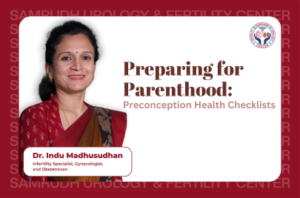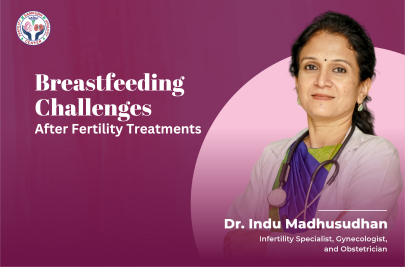Sleep is essential for overall health, yet its impact on reproductive wellness is often overlooked. Recent research reveals that the quality and duration of sleep play a critical role in the intricate balance of hormones, the regulation of stress responses, and the efficiency of the immune system—all of which are vital for fertility. Whether it’s the production of high-quality gametes or the proper functioning of the reproductive organs, sleep patterns profoundly influence the chances of conceiving in both men and women.
The Role of Sleep in Hormonal Regulation
Sleep is a key regulator of the body’s circadian rhythm, which in turn orchestrates the secretion of various hormones. During sleep, the body releases melatonin—a hormone known for its potent antioxidant properties and its role in regulating reproductive hormones. For women, melatonin not only supports ovarian function but also helps modulate estrogen production. In men, proper sleep is essential for maintaining optimal testosterone levels, which are critical for sperm production and overall reproductive function.
When sleep patterns are disrupted—whether due to insufficient sleep, irregular sleep cycles, or poor-quality sleep—the balance of hormones becomes disturbed. Elevated levels of stress hormones like cortisol, which typically rise in response to sleep deprivation, can inhibit the release of reproductive hormones. This misalignment can lead to irregular menstrual cycles in women and suboptimal testosterone levels in men, reducing fertility potential.
How Sleep Affects Female Fertility
For women, consistent, restorative sleep is a cornerstone of reproductive health. Research indicates that women who experience chronic sleep deprivation are more likely to encounter menstrual irregularities and anovulation (lack of ovulation). Here are some key points highlighting the connection:
- Menstrual Cycle Regulation: The menstrual cycle is tightly linked to the circadian clock. Disruptions in sleep can lead to irregular cycles, altered timing of ovulation, and, ultimately, reduced chances of conceiving.
- Melatonin and Ovarian Health: Adequate melatonin levels promote the development of high-quality eggs by reducing oxidative stress in ovarian tissues. Women with disrupted sleep tend to have lower melatonin levels, which can negatively impact egg quality.
- Stress and Inflammation: Poor sleep increases cortisol levels—a stress hormone that not only suppresses reproductive hormone production but also exacerbates systemic inflammation. Both elevated cortisol and chronic inflammation have been associated with conditions such as polycystic ovary syndrome (PCOS) and endometriosis, which can further impair fertility.
How Sleep Influences Male Fertility
In men, the quality of sleep is directly related to testosterone production and sperm health. Several studies have demonstrated that poor sleep habits can diminish key aspects of male reproductive function:
- Testosterone Production: Testosterone, critical for sperm production and sexual function, follows a diurnal cycle with peak levels typically occurring during early morning hours. Disrupted or insufficient sleep interferes with this cycle, leading to reduced testosterone levels.
- Sperm Quality and Motility: Inadequate sleep has been linked to lower sperm count, reduced motility, and abnormal sperm morphology. The oxidative stress induced by sleep deprivation can damage sperm DNA, further compromising fertility.
- Erectile Function: Consistently poor sleep may contribute to vascular issues and increased stress levels, factors known to affect erectile function and overall sexual performance, indirectly influencing the probability of conception.
The Impact of Circadian Rhythms
Circadian rhythms are our body’s natural 24-hour cycles, influencing sleep-wake patterns, hormone secretion, and metabolic processes. When these rhythms are thrown off—due to irregular work schedules, nighttime shift work, or chronic sleep disturbances—the downstream effects can be significant:
- Hormonal Imbalance: Misaligned circadian rhythms disrupt the normal production of reproductive hormones. For instance, in women, altered circadian timing can disrupt the secretion of luteinizing hormone (LH) and follicle-stimulating hormone (FSH), both critical for ovulation.
- Metabolic Health: Circadian disruption can also lead to insulin resistance and increased inflammation, both of which are factors linked to reduced fertility. Maintaining regular sleep patterns helps preserve metabolic balance, thereby supporting reproductive function.
Strategies to Optimize Sleep for Better Fertility
Improving sleep quality and maintaining a consistent sleep schedule can be crucial steps in enhancing reproductive health. Consider these evidence-based strategies:
- Establish a Consistent Sleep Schedule:
Aim to go to bed and wake up at the same time every day—even on weekends—to regulate your body’s internal clock. - Create a Relaxing Bedtime Routine:
Develop calming pre-sleep rituals, such as reading, meditation, or gentle stretching, to signal to your body that it’s time to unwind. - Optimize Your Sleep Environment:
Ensure your bedroom is cool, dark, and quiet. Consider using blackout curtains, white noise machines, or relaxation apps to enhance sleep quality. - Limit Exposure to Screens Before Bed:
The blue light emitted by phones, tablets, and computers can interfere with melatonin production. Try to avoid screens at least one hour before bedtime. - Monitor and Manage Stress:
Incorporate stress reduction techniques like mindfulness, deep breathing exercises, or yoga into your daily routine. Lower stress levels promote better sleep and, in turn, support hormonal balance. - Exercise Regularly:
Regular physical activity can improve sleep quality and regulate the circadian rhythm. However, avoid vigorous exercise too close to bedtime as it may interfere with your ability to fall asleep.
Conclusion
In conclusion, sleep is not just about rest—it is integral to reproductive wellness. Adequate and regular sleep fosters hormonal balance, reduces chronic inflammation, and supports overall metabolic and immune health, creating an ideal environment for conception. For women, sound sleep helps regulate the menstrual cycle and improves egg quality, while for men, it is essential for maintaining optimal testosterone levels and robust sperm health. By prioritizing sleep hygiene along with a healthy lifestyle, you can take proactive steps toward enhancing fertility.
Understanding the profound impact of sleep on reproductive health encourages us to view sleep as a critical element in our fertility strategy. Embrace consistent sleep patterns, create a calming bedtime routine, and reduce stress for a healthier, more fertile future.













